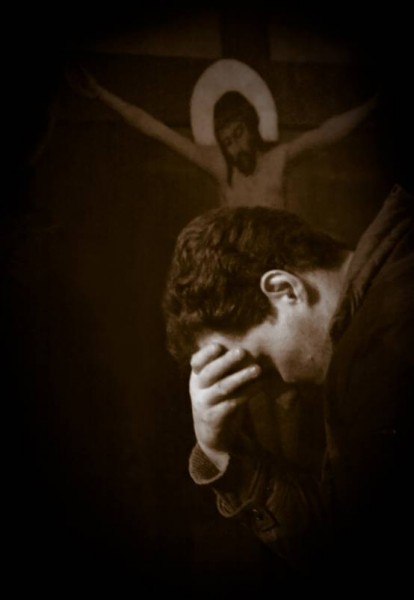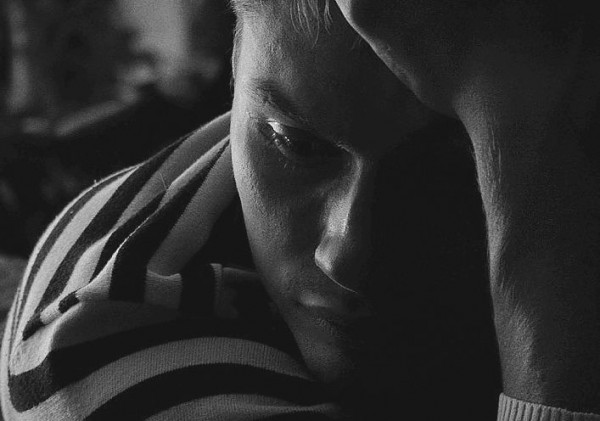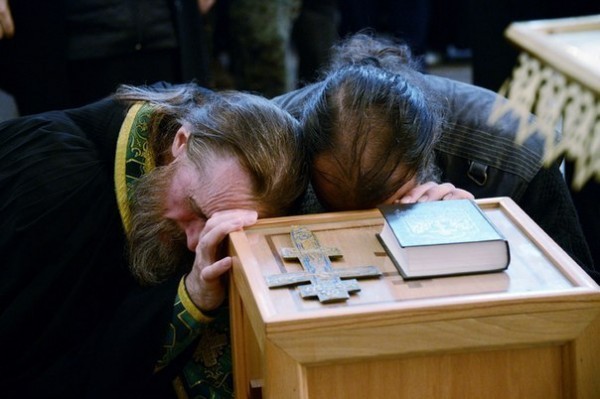Forgiving and Forgetting
Source: Greek Orthodox Metropolis of Denver
http://www.pravmir.com/forgiving-and-forgetting/
In our confused and evil world, how do we, as Orthodox Christians, eliminate from our lives our shortcomings, the sins of commission and the sins of omission? How do we expunge from our minds and our hearts those things that have brought about undesired and intolerable experiences, which consequently have brought on abnormal behavior on our part?
METROPOLITAN ISAIAH OF DENVER | 02 NOVEMBER 2015
Forgiving and Forgetting
Having reflected on the behavior of people in today’s society, and comparing some of the behavior which has to do with one identifying himself with this world, on the one hand, with what Holy Scripture teaches, on the other, it is apparent that there is a wide gulf of separation and contradiction between the two. Although Holy Scripture focuses on how a person should relate to God, society teaches that a person should relate to the world and all its ramifications, in order to live a secure and pleasant life with all its benefits.
From the perspective of Holy Scripture, people prefer to live in darkness rather than to have the light of life which is the Lord Jesus Christ. The reason for this is that the forces of evil which emerge from Satan and his co-workers, the fallen angels, have dignified the lie as truth and truth as a lie. Saint Paul speaks on this when he writes that the days now exist wherein good shall be presented as evil, and evil for good. The people, he says, will exchange the truth for a lie.
This is why, when people use worldly knowledge, which is derived from this world, and which is contrary to the knowledge that comes from God, it is easy for them to rationalize human behavior, especially that which is not considered normal, and to give false explanations regarding its existence. Holy Scripture, saying that God’s foolishness is wiser than the wisdom of the world, regards much of today’s psychological and psychiatric empirical knowledge as missing the mark, and not finding the cause of many disturbances of the soul.
From the teachings of the Orthodox Church we believe that all misbehavior of one form or another is sin, meaning that it is contrary to the divine will.
For one to become godlike, if this is desired, one must attempt to live in conformity to the divine will, whether this is achieved or not. For, as Holy Scripture states, the attempt is equal to the accomplishment. This is the reason that Christ the Lord came into the world–to direct every person, who desires, to be like Him. Envy, anger, frustration, enmity, egotism, hatred of good and, especially, pride are the fruits of evil which come from Satan.
Many people have at times been sorrowful for saying and doing things which they had wished they had never done. Unfortunately, the fact is such behavior cannot be “taken back.” Even if they were to die, they could not undo what was done. Time does not go backwards, except in a film or a tape. Everything moves forward.
God, knowing this, provides a way, in His wisdom, for such misbehavior to be undone. Yet, it is not that He undoes anything. What He does is to eliminate the undesired things said and done by forgetting them. We in our finite state can never forget in totality. Only God Who is infinite can “wipe the slate clean.” Even though God forgave David the King of his sin, he still wrote down, “My sin is ever before me.” David knew that he could never undo what he had said and done. But he believed that God and only He could do this.
Photo: tatiana-akko.livejournal.com
It is delusionary for one to think that one can back up an event in his life, whether caused by him or another, to a previous time when the event had not occurred. If this were possible Saint Peter would not have had to break down and weep bitterly for betraying Christ three times. He could never take back or undo what he had done. But, he believed that God would “blot out all my iniquities.”
How, then, does one eliminate those things in his life that weigh upon him, things said and done by him or another? Reiterating what was said above, only God can undo that which was grievous. It is God and only God Who wipes away all grievous behavior, all kinds of immorality and crime, all grievous acts which bring about sadness and tragedy. When He was dying on the Cross, the Lord Jesus Christ cried out to the Father, regarding those who had crucified Him, “Father, forgive them; for they do not know what they are doing.” Only God forgives; only God forgets; only God wipes the slate clean for a new beginning.
In our confused and evil world, how do we, as Orthodox Christians, eliminate from our lives our shortcomings, the sins of commission and the sins of omission? How do we expunge from our minds and our hearts those things that have brought about undesired and intolerable experiences, which consequently have brought on abnormal behavior on our part? There is only one way. Since, as we have said, time can never go backward, God provides the only means to eliminate those sufferings and setbacks in our lives. Saint Peter is one model of this. Even though he had greatly sinned, he went on to become one of the greatest Apostles. He succeeded in this because he knew that Christ the Lord had forgiven him and would never again remind him of the sin. The Lord had wiped away the sin of Saint Peter, since only God can do this.
We, wrapped up with the false wisdom of this world, think that, by our own intelligence and with the assistance of the professionals who study human behavior, we can undo things that we want undone. This is the false pride that comes from the evil forces that tell us that we can perform this work. This falsehood is parallel to Satan’s statement to our progenitors when he told them that they would be like God if they partook of the forbidden fruit.
Since all unnatural behavior is the result of our human imperfection, it all falls under the category of error or sin.
We know from Holy Scripture that no one can forgive sins but God. Therefore, when one goes to God and presents to Him his problems, beseeching God’s correction and forgiveness, God not only forgives, but says in Holy Scripture that He “remembers our sins no more.”
Consequently, how does God eliminate those things in our lives which we try to forget or to erase through drinking, drugs, or by other delusional means? He tells us to confess to Him those things in our lives which bring about our sufferings through our private prayers and especially through the sacrament of Holy Confession. In this sacrament the prayer of absolution is read by the priest, who thereafter tells the penitent, “Go in peace.” The sins have all been wiped away through the prayer to God.
It is a paradox, not to say a tragedy, that when one who is sinful and does not repent, asking God’s forgiveness, his sins are still with him in the eternal condition. This means that, in the eternal condition, which is called Hell, and where God’s forgiveness is not requested by those there, the sins remain unforgiven into all eternity.
As long as we live, we have the opportunity of asking forgiveness for our sins, whether we blame them on others or on ourselves. All we have to do is to go to the church, seeking out the priest who sees himself as our spiritual father, and who willingly prays to God for His mercy and forgiveness, so that our lives may be renewed. When this takes place, we go forth once again into the world, fortified by God’s grace to start life anew with the confidence that God Who loves us will always be with us for our continued renewal and for our salvation.
On Judging Others
The spiritual labor of non-condemnation
The venerable Maxim the Confessor says: “Should we not tremble, hearing how God the Father, without judging anyone Himself, ‘hath committed all judgment unto the Son’ (John 5:22)? And the Son, our Lord Jesus Christ, says to us: ‘Judge not, and ye shall not be judged’ (Luke 6:37). Similarly Apostle Paul says: ‘Therefore judge nothing before the time, until the Lord comes’ (1 Cor. 4:5), and again: ‘for wherein thou judgest another, thou condemnest thyself’ (Rom. 2:1). I tell you, it is so: for men, having ceased to weep over their own sins, have taken the judgment out of the hands of the Son, and judge and condemn each other as though they themselves were sinless! Truly this frightens the heavens and makes the earth tremble.”
Centuries pass, yet men still stand before this unassailable wall of condemnation and are unable to overcome it. Adam, justifying himself in paradise before God, condemned Eve; Cain, having condemned his brother Abel in his heart, killed him; the sin of condemnation led the Jews to kill the Messiah; and we, modern Cainites and Pharisees, are pushed by condemnation to a daily spiritual execution of our brothers.
Judgment tortures the doers of it themselves, takes away their peace of mind, forces them to continuously monitor the actions of those around them, and poisons their souls with the bitter poison of suspicion.
An elder once said: “It is easy to step unto the path of salvation: you must only firmly decide that from this moment you will no longer judge anyone.” We can understand these words with our mind, but how do we actually accomplish them? For this we must understand why we judge others. The reason lies in our false self-evaluation: he judges others, who feels that he has a right to judge, who places himself higher than others, who sees himself blameless of the sins of which he accuses others. Whoever is not aware of his own spiritual corruption, will never cease to judge others.
But we are all tarnished by sin, we all agonize over our corruption, we all hope for deliverance in eternal life, we all have need of Divine aid. Again we know all this theoretically, but in practice it is painfully difficult to refrain from judgment; we yearn to judge others. Why? Because judgment has become a passion with us and, like all vices, it gives us demonic pleasure, a shiver of prideful delight. How “delightful” to judge someone in the course of a friendly conversation, to laugh at another’s deficiencies… But do we not heed the warning of the Gospel that some day we will have to answer for every single word we utter, and that includes this false delight which is based on condemnation?
The struggle against the vice of judgment, like any other vice, cannot be theoretical; it must take place every day, every minute, throughout one’s entire life; it must be based on forcing oneself to be attentive to all one’s words and thoughts. In other words, we cannot do without spiritual labor.
But of what should this spiritual endeavor consist in such a case? In monitoring oneself with utmost attention throughout all the various circumstances of life. Moreover, we will soon notice that, in the course of the day, occasions for judgment surround us like invisible underwater reefs and threaten to destroy the ship of our soul. However, with God’s help, we will gradually learn to avoid collision with these underwater reefs: where we formerly became irritated - we will remain calm; where we became angry - we will remain silent; where we tried to justify ourselves - we will remain humble; where we judged others - we will pray for them and for ourselves, in order to avoid similar sins.
Very soon we will notice that our soul, no longer burdened by judgment, will experience genuine spiritual joy and lightness; and that is only natural, since the yoke of the sins of others will no longer oppress us.
Just as judgment attracts other vices: anger, quarreling, enmity, so a victory over condemnation opens the way to other virtues: pure prayer, tranquility, a true evaluation of one’s sins. It is for this reason that demons do their best to ensnare the soul into the nets of judgment, and to hinder its liberation from this vice. In turn we, too, have no right to delay our struggle with judgment for the same reason, but must immediately begin to watch ourselves attentively.
“To watch oneself” is the golden rule of Christian morality, which - alas! - is so often neglected by Christians. How much effort we spend on external activities and how little energy we save for the task of monitoring ourselves. And yet, without this internal endeavor, nothing external will ever lead us to salvation…
Saint Seraphim of Sarov said that the goal of Christian life is the acquisition of the Holy Spirit. And to attain this goal we must step onto the path of a spiritual struggle with passions, and with God’s help, overcome them one by one. But we can begin the battle with this same passion for judgment.
Let us remember the words of the elder: “It is easy to step unto the path of salvation: you must only firmly decide that from this moment you will no longer judge anyone.”
Monk Vsevolod (Filipyev)
Dear Alex,
I just wanted to tell you that the icon you wrote for me has really changed my life! It is quite different from a reproduction icon. I really think of it as something living. In today's gospel we had the story of the rich young man who meets Jesus and we are told that Jesus "looked steadily at him and loved him." and I feel that this deep sense of personal engagement with the Lord when I sit before it which I often do. It takes me into prayer without any need for words. So, thank you very very much....
+Kevin
AN ICON OF CHRIST PANTOCRATOR
Father Alex, a monk of Pachacamac, "wrote" an icon at the request of a retired English Catholic archbishop of Christ Pantocrator. Here is a letter he has received from the archbishop which gives us testimony that icons "work". Father Alex is a pupil of Aidan Hart, an Orthodox iconographer.
Dear Alex,
I just wanted to tell you that the icon you wrote for me has really changed my life! It is quite different from a reproduction icon. I really think of it as something living. In today's gospel we had the story of the rich young man who meets Jesus and we are told that Jesus "looked steadily at him and loved him." and I feel that this deep sense of personal engagement with the Lord when I sit before it which I often do. It takes me into prayer without any need for words. So, thank you very very much....
+Kevin
PROTECTOR OF RUSSIA
FEAST: NOVEMBER 4th
click on title
HAPPY FEASTDAY, RUSSIA!!












No comments:
Post a Comment